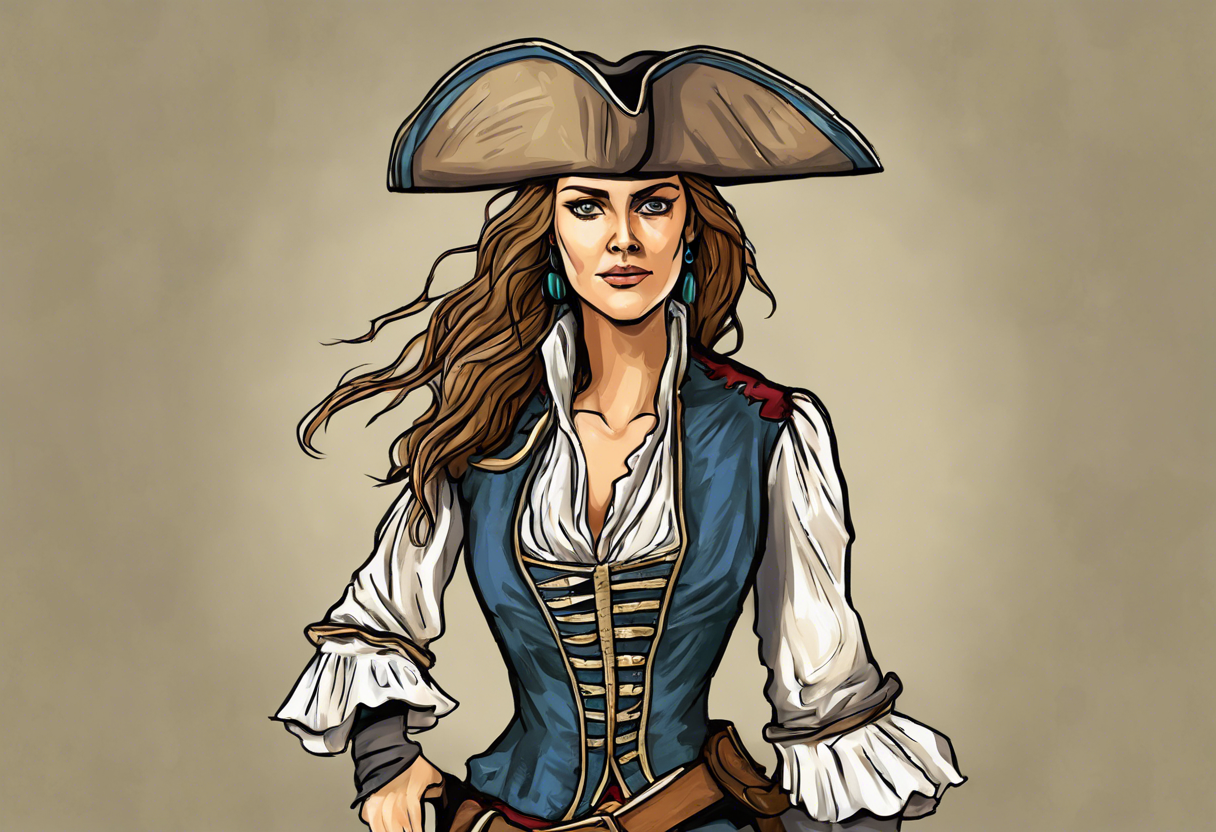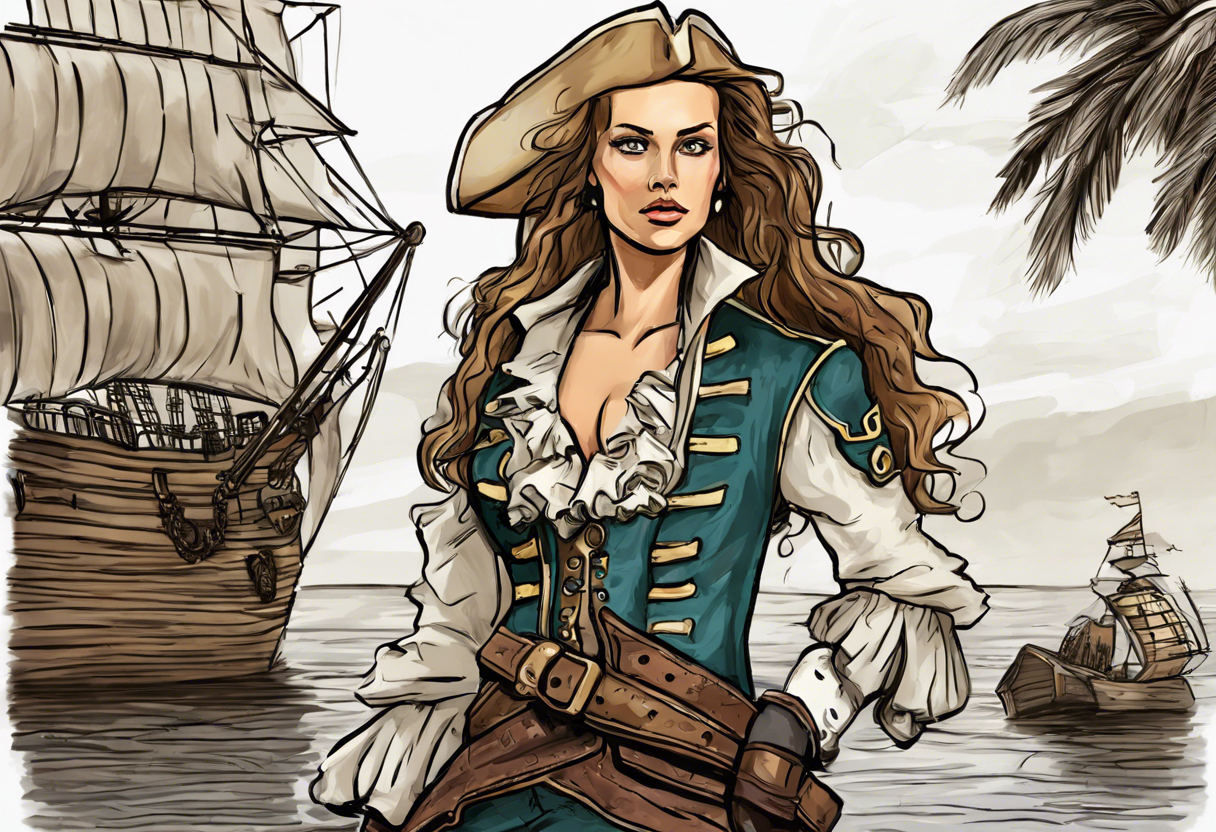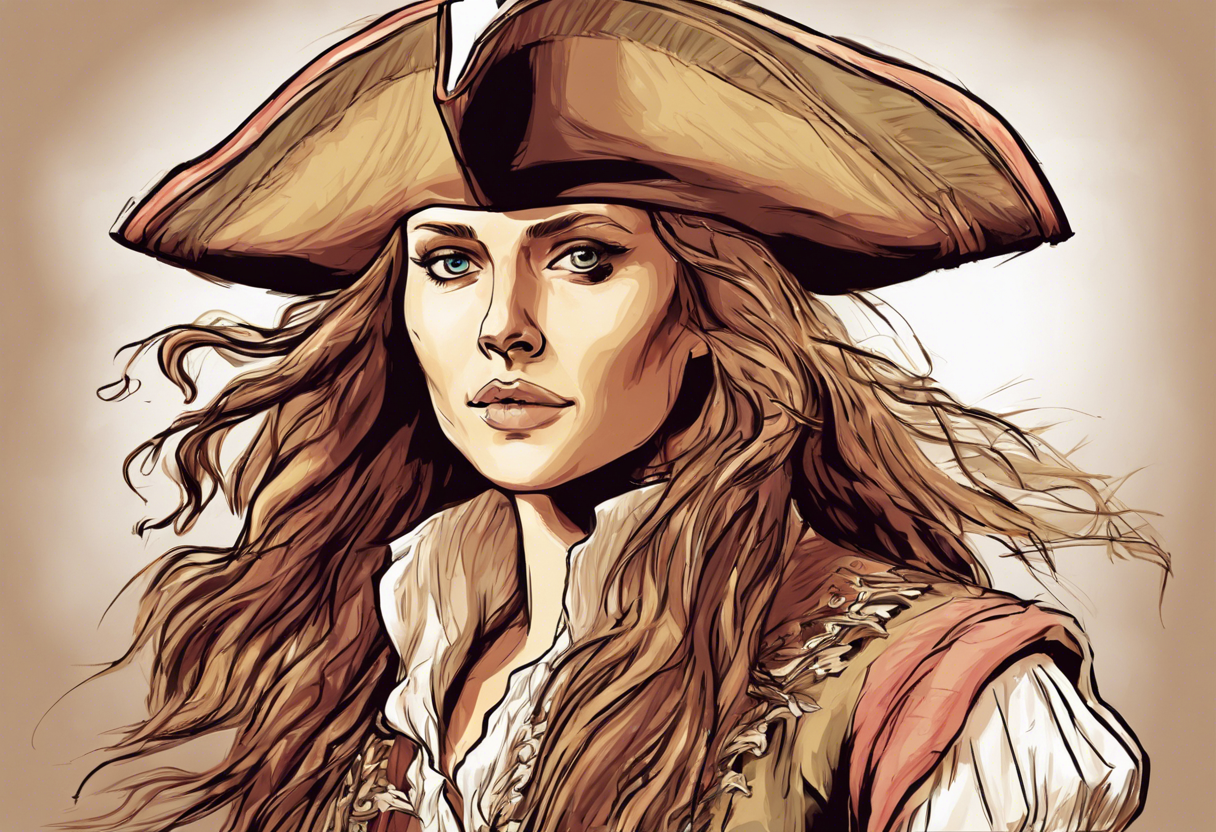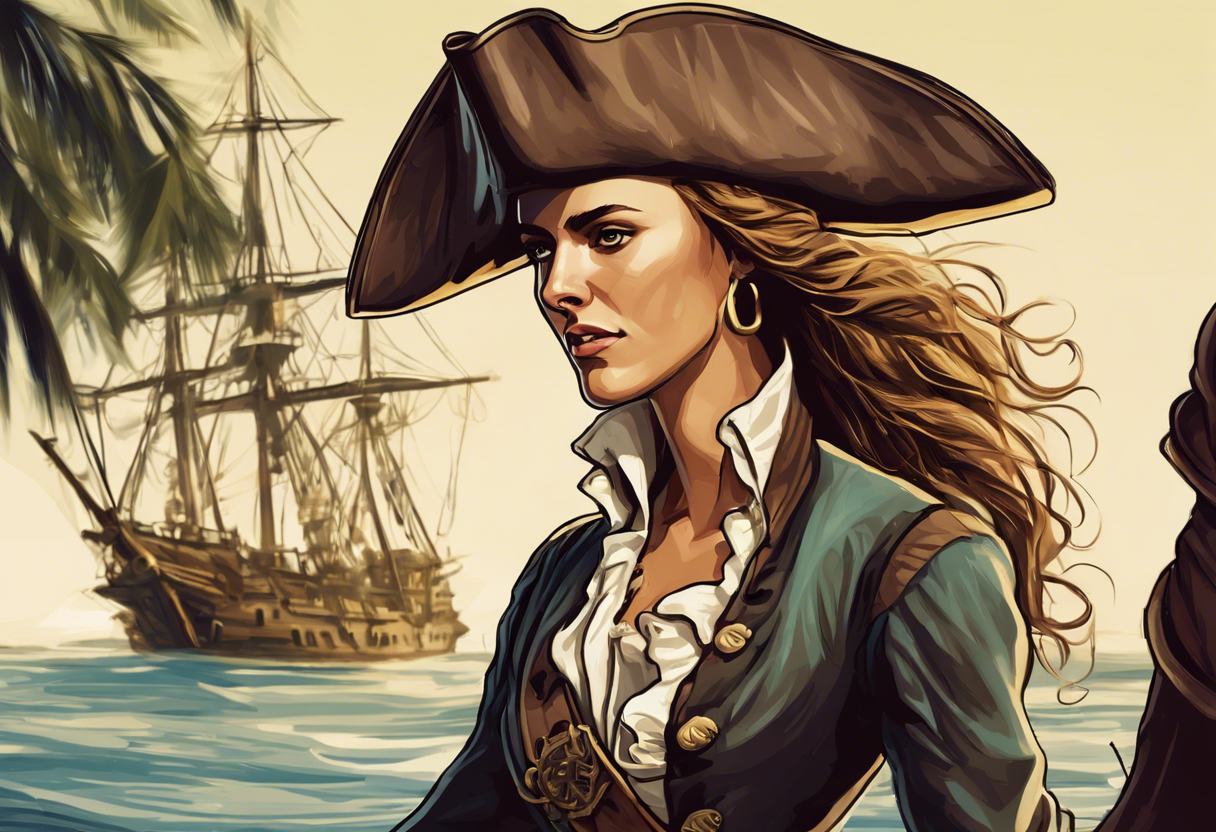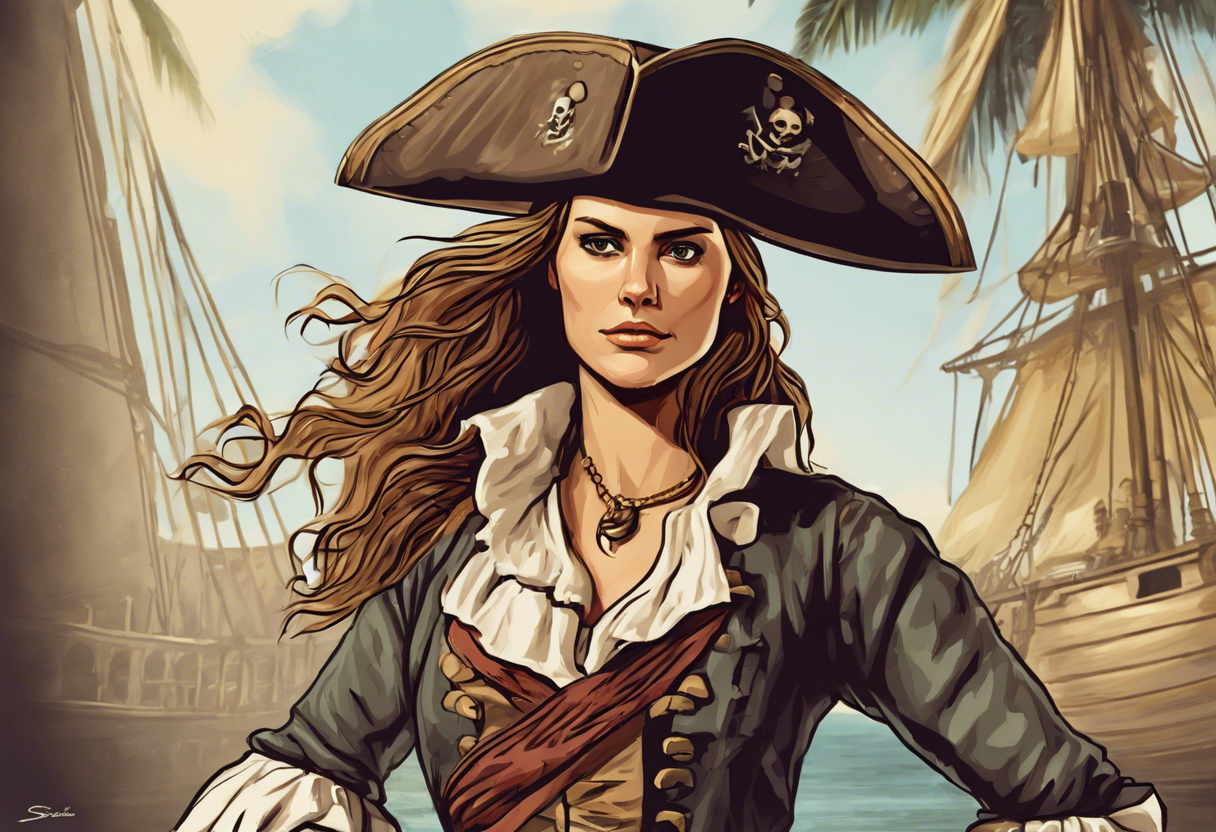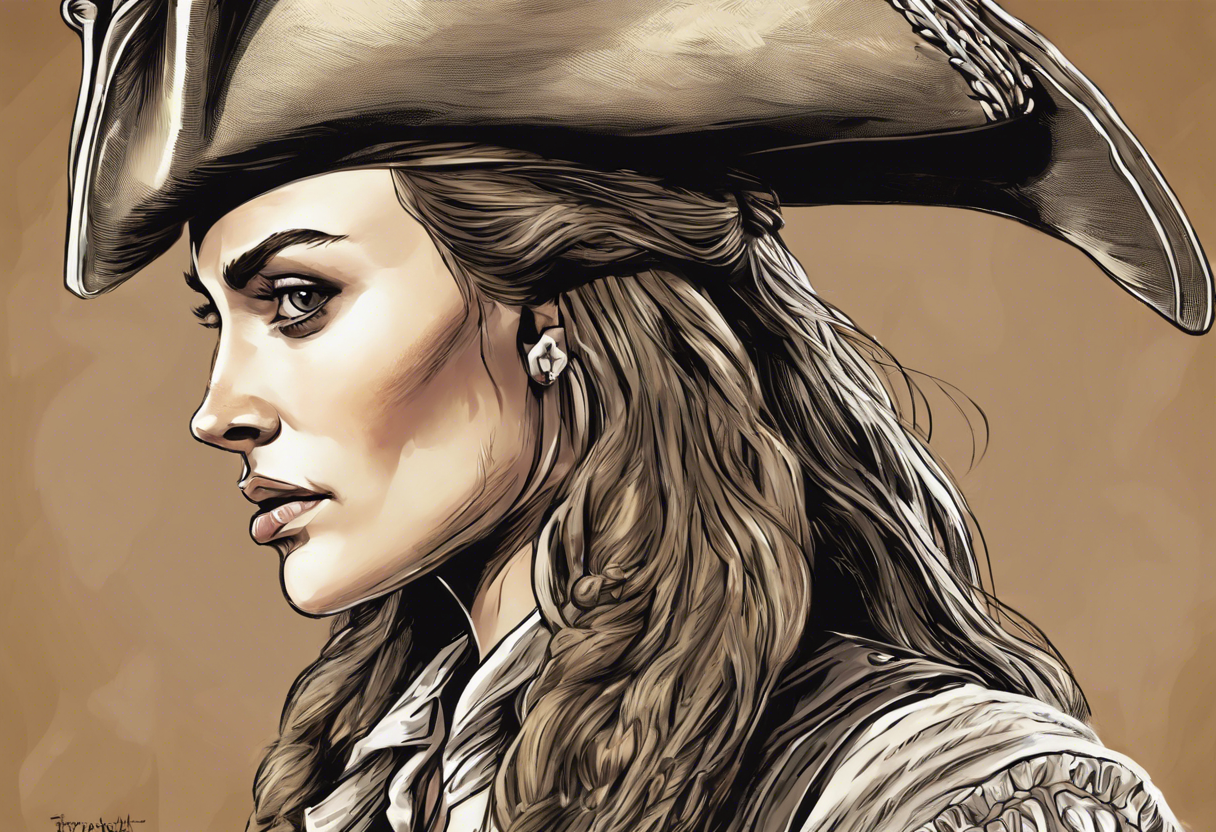Elizabeth Swann: A Comprehensive Analysis of the Pirates of the Caribbean Icon
Introduction
Elizabeth Swann, portrayed by actress Keira Knightley, is a central and pivotal character in the Pirates of the Caribbean film series. First introduced in the 2003 film "Pirates of the Caribbean: The Curse of the Black Pearl," Elizabeth is the daughter of Governor Weatherby Swann of Port Royal. Born into privilege, she is initially depicted as a young girl with a strong sense of adventure and a fascination with the world of piracy [1][5].
Elizabeth’s character is significant not only within the narrative of the films but also in the broader context of female representation in action-adventure movies. Her journey from a sheltered governor’s daughter to a formidable pirate embodies themes of empowerment, self-discovery, and the challenge to patriarchal norms. This transformation has made her a beloved and inspiring character, both within the franchise and in popular culture.
Role in the Story
Elizabeth Swann’s storyline is intricately woven into the fabric of the Pirates of the Caribbean series. Her journey begins when she is kidnapped by Hector Barbossa’s pirates at the age of 18. This event sets off a chain of adventures as her friend and lover, Will Turner, and the infamous pirate Captain Jack Sparrow embark on a mission to rescue her [5].
Throughout the series, Elizabeth finds herself entangled in various conflicts, including battles against the cursed pirates of the Black Pearl, the wrath of Davy Jones, and the machinations of the British East India Company. Her involvement is not passive; she actively participates in the battles, using her intelligence, bravery, and strategic thinking to aid her allies. For instance, she cleverly manipulates situations to her advantage, such as getting Jack Sparrow drunk to send a signal to the Royal Navy and pretending to be Calypso to negotiate with Sao Feng [2][3].
Elizabeth’s relationships with other characters are crucial to her development and the plot. Her romance with Will Turner is a central theme, but her interactions with Jack Sparrow and other pirates also shape her character. She evolves from being a damsel in distress to a capable leader, eventually taking on the role of a Pirate Lord and even becoming the Pirate King in "Pirates of the Caribbean: At World’s End" [1][3].
Character Analysis
Elizabeth Swann’s personality is multifaceted and dynamic. She is intelligent, resourceful, and quick-thinking, often using her wit to navigate treacherous situations. Despite being raised to be a lady, Elizabeth has a natural inclination towards adventure and leadership, which she develops over the course of the series. Her determination and loyalty to her friends and loved ones are key traits that make her a compelling character [4].
One of the most significant aspects of Elizabeth’s character is her growth from a sheltered governor’s daughter to a fearless pirate. This transformation is realistic and well-structured, reflecting the broader themes of empowerment and self-discovery. Unlike many female characters in action-adventure films, Elizabeth’s development is gradual and nuanced, making her relatable and inspiring to audiences [1][3].
Elizabeth’s use of femininity is also noteworthy. She both embraces and rejects the conventions of her time, using her femininity to her advantage in various situations. For example, she pretends to faint from corset suffocation to solve problems and manipulates expectations of feminine weakness to achieve her goals [3].
Themes and Symbolism
Elizabeth Swann embodies several themes that are central to the Pirates of the Caribbean franchise. Her character represents empowerment, freedom, and the exploration of identity. Her journey challenges patriarchal norms and societal expectations, making her a symbol of resilience and independence [1][3].
The theme of empowerment is particularly evident in Elizabeth’s transformation. She moves beyond the traditional role of a female character in Hollywood, learning to wield a sword, navigate treacherous waters, and make strategic decisions. This evolution highlights the fight against patriarchal constraints and the pursuit of self-fulfillment [1][3].
Elizabeth’s struggle with her identity as both a noblewoman and a pirate reflects the internal conflict many individuals face when navigating their desires and societal roles. Her ability to balance these dual identities makes her a complex and relatable character [1][3].
Cultural Impact
Elizabeth Swann has had a significant cultural impact, both within the Pirates of the Caribbean franchise and in broader popular culture. Her character has inspired a new generation of strong female leads in Hollywood, paving the way for more nuanced female characters in action-adventure films. This influence is evident in the many female characters that have followed in her footsteps, challenging stereotypes and breaking new ground in the film industry [1][3].
The popularity of Elizabeth Swann has also led to extensive merchandising, including action figures, clothing, and collectibles. Her character resonates with audiences, contributing to the franchise’s overall success and cementing her place as a cultural icon [1].
Critical Reception
Elizabeth Swann has been widely praised by critics and audiences alike for her complexity, growth, and relatability. Her character development is often highlighted as one of the strengths of the Pirates of the Caribbean series. Critics appreciate how she challenges traditional female roles and stereotypes, making her a standout character in a male-dominated genre [1][3].
However, some critics have noted instances where Elizabeth seems to dip into misogynistic tropes, although these are generally overshadowed by her overall portrayal as a strong and independent woman. The nuanced and realistic way her character evolves has been particularly praised, making her a beloved and enduring character in the franchise [3].
Legacy
Elizabeth Swann’s enduring appeal lies in her multifaceted character and the themes she represents. She remains a relevant and inspiring figure in contemporary discussions about female empowerment and representation in media. Her influence can be seen in many subsequent films and characters, where strong, independent female leads have become more prevalent.
Elizabeth Swann’s legacy extends beyond the Pirates of the Caribbean franchise, inspiring a new wave of female characters in action-adventure films. Her character serves as a reminder that women can be just as capable and strong as men, challenging societal norms and stereotypes in a compelling and relatable way.
References
- https://digital-dev.lib.calpoly.edu/education-sosial/exploring-the-character-of-elizabeth-swann-a-deep-dive-into-her-role-in-the-pirates-of-the-caribbean-franchise.html
- https://marvelousgeeksmedia.com/2021/06/25/character-deep-dive-elizabeth-swann/
- https://www.hercampus.com/school/kenyon/feminism-corset-evolution-elizabeth-swann/
- https://worldsofdisney07.proboards.com/thread/10729/elizabeth-swann
- https://www.sons-of-pirate.com/pirates-of-the-caribbean/elizabeth-swann/

